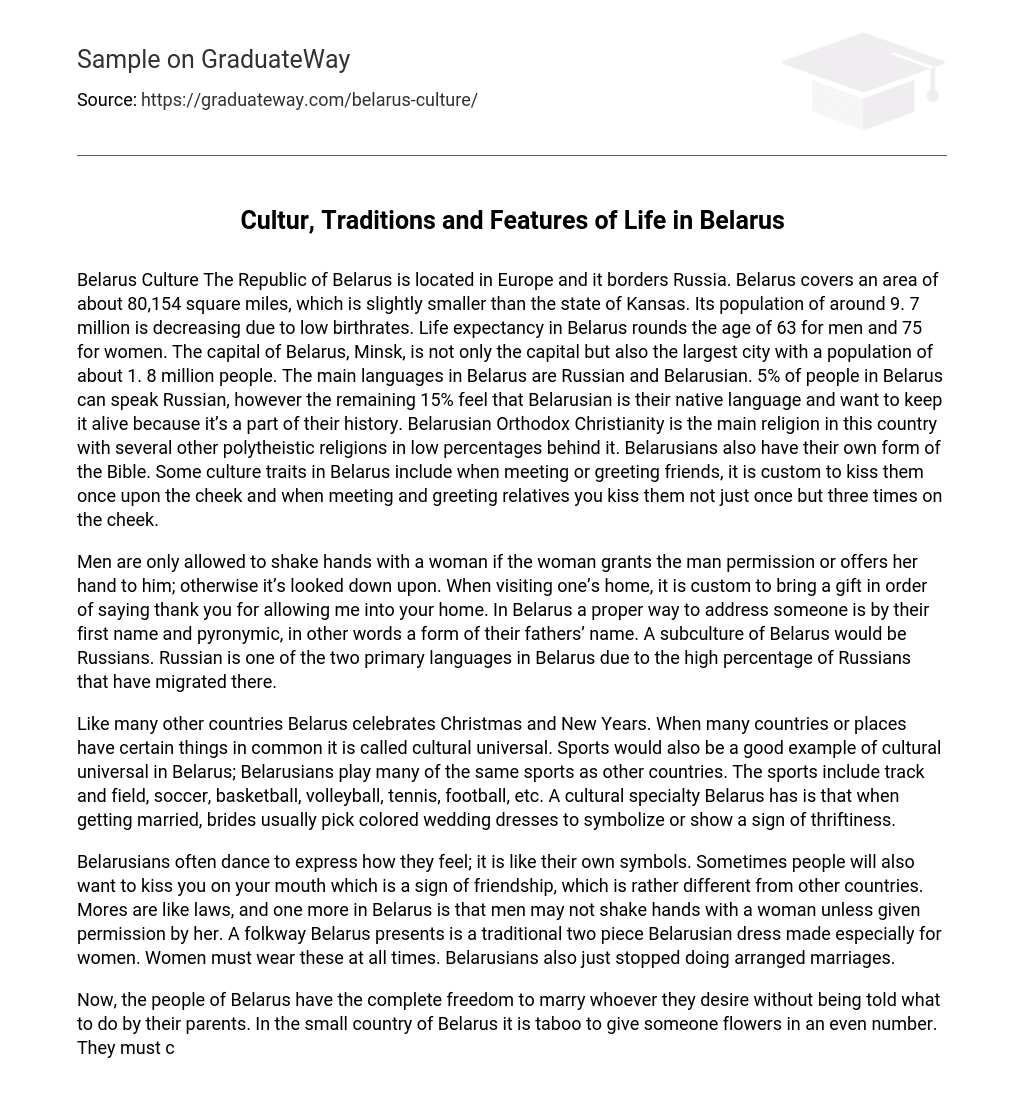The Republic of Belarus, located in Europe and bordering Russia, spans an area of approximately 80,154 square miles (slightly smaller than Kansas) with a population of around 9.7 million. However, the population is declining due to low birth rates.
Life expectancy in Belarus averages around 63 years for men and 75 years for women. The capital city, Minsk, holds a population of about 1.8 million individuals.
In Belarus, the primary languages spoken are Russian and Belarusian. While Russian is spoken by 85% of the population, the remaining 15% consider Belarusian as their native language and strive to preserve it due to its historical significance.
The predominant religion in Belarus is Belarusian Orthodox Christianity; however, there are also smaller followings of polytheistic religions. Additionally, there exists a unique version of the Bible specifically tailored for Belarusians.
Amongst cultural traditions in Belarus is the custom of greeting friends with one kiss on the cheek while relatives are greeted with three kisses on the cheek.
In Belarus, there is a customary practice that men should not shake hands with women unless they are given permission or the woman initiates the gesture. When visiting someone’s home, it is expected to bring a gift as a way of showing gratitude for the invitation. The etiquette in Belarus also requires people to address each other using their first name followed by their patronymic, which is based on their father’s name. Additionally, within Belarus, there is a subculture made up of individuals who identify as Russians because of the large number of Russian immigrants in the country; as a result, Russian has become one of the main languages spoken.
Belarus, similar to other countries, observes the festive occasions of Christmas and New Years. These celebrations are regarded as cultural universals, representing shared customs among diverse nations and regions. Likewise, sports in Belarus also function as a cultural universal, with Belarusians engaging in comparable sports to individuals from other countries such as track and field, soccer, basketball, volleyball, tennis, and football. It is noteworthy that weddings possess a distinctive cultural element in Belarus. Brides frequently choose colored wedding gowns to symbolize thriftiness or frugality.
Belarusians possess a distinctive method of conveying their emotions via dance, which holds significant symbolism for them. Moreover, within Belarusian culture, it is customary to display friendship through mouth-to-mouth kisses, a practice that varies from other nations. Furthermore, it is considered almost obligatory in Belarus for men to obtain a woman’s consent before shaking her hand, treating it with utmost respect. Women traditionally don a two-piece national attire in Belarus and are expected to always wear it. Additionally, arranged marriages have experienced declining prevalence among Belarusians in recent times.
Now, the people of Belarus can freely choose their life partners without parental interference. In this small country, presenting flowers in an even number is considered taboo, except for funerals. Odd numbers of flowers are customary as offering an even number is seen as disrespectful and lowering one’s esteem. Interactions in Belarus frequently result in monologues, and contradicting someone or challenging the veracity of their statements can easily provoke an argument or fight.





